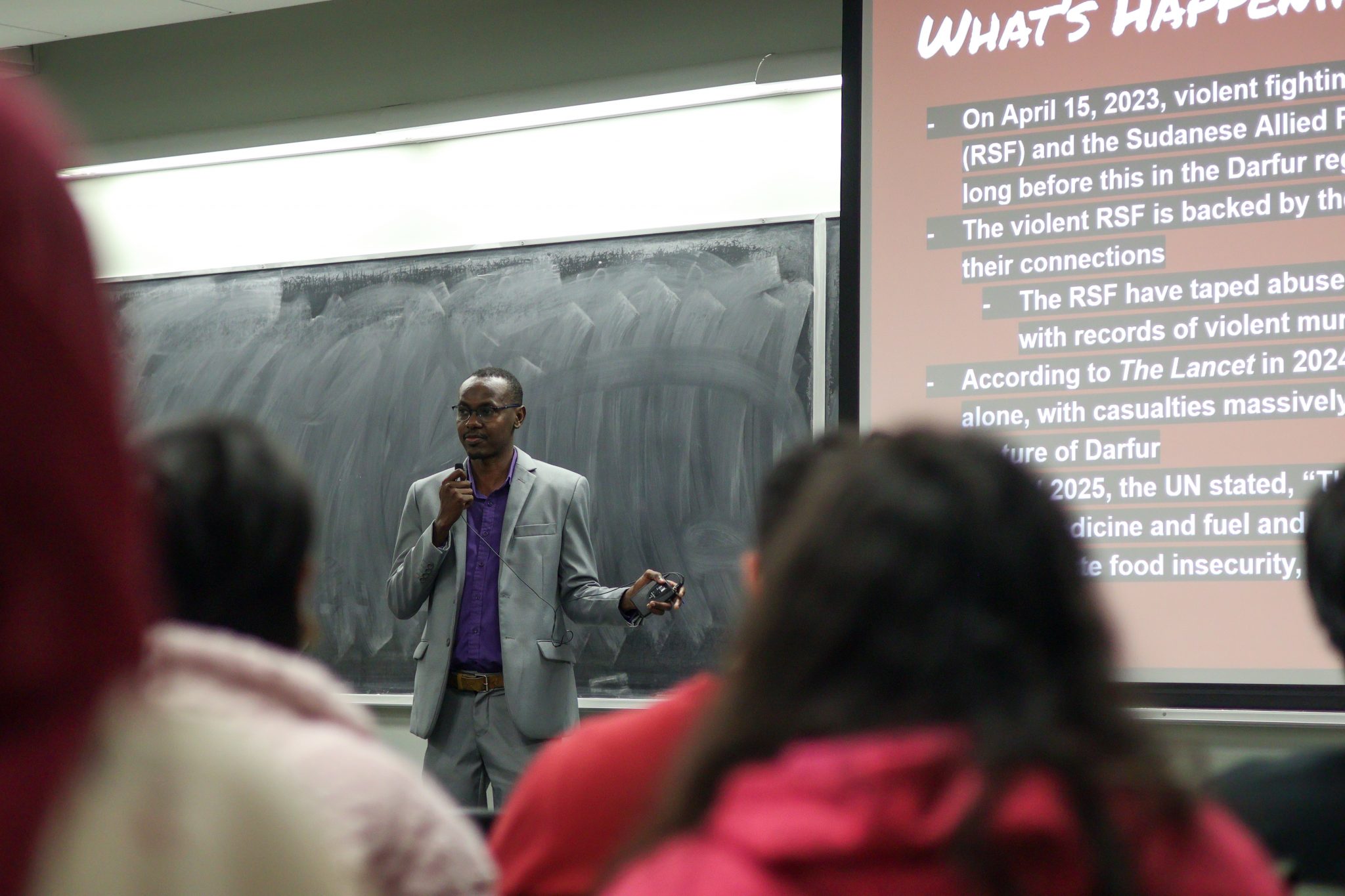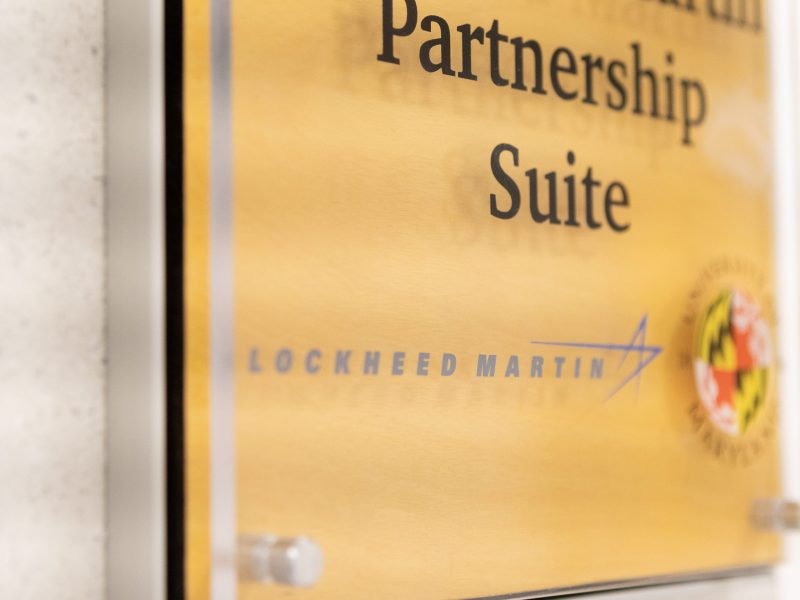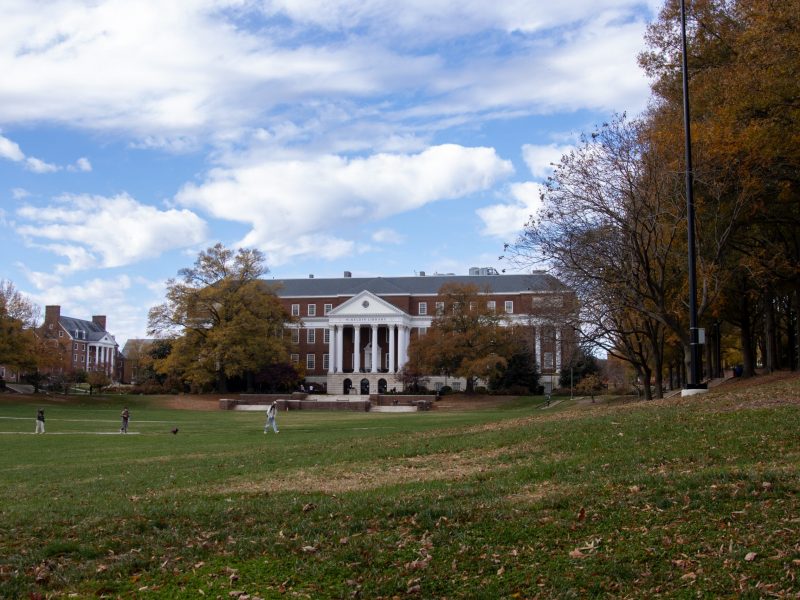When civil war broke out in Sudan in 2023, Aseel Ahmed’s family raced to collect enough money to help relatives flee the country.
Ahmed, the president of the University of Maryland’s Sudanese Student Organization, said they had to gather thousands of dollars because of how expensive it is to get out of danger and into neighboring Egypt. It took Ahmed’s family multiple days to leave through various means of transportation, the sophomore physics major said.
“They were fortunate that they had someone to offer them that money,” Ahmed said. “Most people don’t have that.”
More than 40 students and university community members attended a roundtable Thursday about the civil war in Sudan. Since the war started two and a half years ago, the fighting has killed at least 40,000 people and displaced more than 12 million others, according to the Associated Press. Aid groups said the true death toll could be much higher.
The United Nations’ children’s agency head also said in March that the war in Sudan created the world’s largest and most devastating humanitarian crisis in history.
The roundtable was hosted by NoirUnited, a global development organization mobilizing African diaspora communities across the world, in partnership with multiple student groups, including the Sudanese Student Organization. Attendees discussed the history of Sudan and the crisis.
[UMD community members discuss deadly protests in Nepal, future of country]
The war between the Sudanese military and the Rapid Support Forces — a paramilitary group — began when the previous allies turned on one another in a struggle for power, according to the Associated Press. They were meant to oversee a peaceful government transition together in 2019, but accumulated tension instead led to war.
The Rapid Support Forces said Thursday it has agreed to a U.S.-led mediator group’s humanitarian truce, the Associated Press reported. A Sudanese military official said that the army will only agree to a truce when the Rapid Support Forces completely withdraw from civilian areas and give up weapons, according to the outlet.
The truce comes after the Rapid Support Forces took control of el-Fasher last month, a city that has been under siege for the last 18 months and was the last Sudanese military stronghold in the western Darfur region, the Associated Press reported.
During the assault, the Rapid Support Forces reportedly killed 460 patients in the Saudi Hospital and shot and beat people in their homes and on the streets. Satellite images appear to show mass burials conducted in the region, the outlet reported.
Ibrahim Alduma, a Sudanese human rights advocate, presented an extended history of the war in Sudan at the roundtable.
Alduma moved to Kenya from Sudan in 2023 where he worked with Sudanese youth. He continued working on consensus building and coalitions between different bodies in multiple countries and came to the U.S. in 2025 where he continues his advocacy.
Alduma told The Diamondback that while his family fortunately got out of Sudan, he still has neighbors and friends there. He said nobody can hear their voices, so it’s his responsibility to spread their voices to people from different areas.
“Sudanese civilians are suffering and they need any kind of advocacy or any kind of donation for those people just to stay alive in the future,” Alduma told attendees.
[UMD students honor lost Palestinian lives with campus art demonstration]
During the presentation, Alduma emphasized that Sudan has a lot of natural resources which multiple parties, including the United Arab Emirates, take advantage of for their personal interests.
“[The UAE are] killing Sudanese people to get their resources, and to do it, abolishing their reputation in the world,” Alduma told The Diamondback. “People must know that they are committing crimes in Sudan.”
Sudan filed a case at the top United Nations court in March that alleged the UAE of breaching the genocide convention by arming and funding the Rapid Support Forces, according to the Associated Press. U.S. intelligence assessments for many months have found that the UAE has been sending weapons to Rapid Support Forces. The UAE denies these claims.
Roundtable attendees were broken up into three groups and given multiple questions to discuss with themes including understanding the Sudanese crisis, humanitarian and policy action and diaspora and identity.
Akunna Okonkwo, a research and programs volunteer for NoirUnited, said the organization wants to empower the youth and college-aged students by giving them a platform.
“Our goal with this event is to have people feel empowered, find ways that they can try to connect with the Sudanese cause and also other causes within the continent,” the junior public health science major said.
At the roundtable, Sudanese Student Organization cabinet member Basmah Elradi shared a project she created for her capstone last semester that focused on her parents’ stories and memories in Sudan. Elradi said seeing the pain that her parents were going through motivated her to work on this project.
Elradi also has family members who fled Sudan during the civil war.
“The good memories that they have in Sudan, and of their childhoods and of their children’s childhoods, deserve to be preserved, especially because we don’t have a Sudan to go back to right now,” the junior neuroscience major said.



